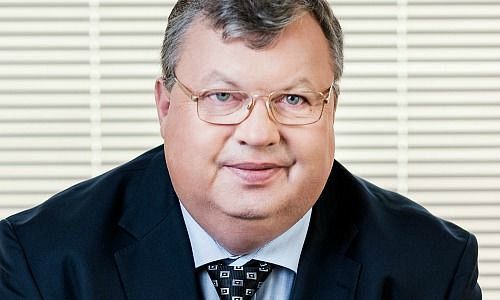Market factors traditionally used by investors are changing so rapidly that many processes completely cease being predictable, financial expert German Lillevali writes.
By German Lillevali, Founder and Chairman of GL Financial Group
In mathematical terms, there are more and more unknown variables, or so-called black swans, in the equation. They lead to developments on the world financial markets that could not have been predicted by classical methods of fundamental or technical analysis.
Two obvious examples are Brexit and the victory of Donald Trump in the U.S. elections. Being unexpected to many, both events produced a swift reaction from financial markets. Many investors who used classical strategies and means of exchange trading suffered in those events, phenomenal for their unpredictability.
Many Challenges for Investors
The year 2017 offers many challenges for investors. If we are talking about familiar financial and investment instruments, then, in conditions of universal unpredictability, not all of them will guarantee stable investments.
For example, it is impossible to exclude the price corrections on stock markets if there is a slowdown in economic growth. And, in general, investments on the stock market bear a high risk in current conditions.
Interested in Stable Income
Prices for fixed-income securities may also fall. In addition, the yield of these securities is very low, especially in Europe.
However, if we look into the future with the eyes of a classical European investor, for instance, the director of a family office, then he will always be interested in stable income and minimal risk. This is why market-neutral strategies are becoming more and more popular.
The Advantage of Market-neutral Strategies
The reasons for the increasing popularity of market-neutral strategies are their peculiarities, which are becoming advantages at the current stage of economic development.
- First, they give the investor an opportunity to diversify risks to the lowest values.
- Second, the return on capital does not depend on whether the market is rising or falling, or whether the Dow Jones or Nasdaq indexes are going up or down.
- Third, the strategy itself assumes a low correlation with current market conditions.
Safest Investment in the World
Market-neutral strategies include a number of strategies, such as arbitrage and pairs trading. One of the most interesting and safest market-neutral strategies in terms of risk-return ratio is statistical arbitrage strategy.
It can bring stable profitability in any market situation, while in terms of volatility, the strategy can be compared with investing in U.S. government bonds, considered the safest investment in the world.
Good Profitability at Low Risk
The strategy of statistical arbitrage is to choose a pair of securities with high correlation. In general, they are bonds of companies in the same industry, with the most similar business structures, equally subject to external factors, for example, Visa and MasterCard.
Normally their equity prices move in the same direction, but sometimes, due to market failure, prices can differ greatly. In such times, there is the opportunity to perform transactions on a pair of securities, when both short and long positions are used simultaneously.
Stable Over Time
Since the discrepancy in the prices of a pair of securities has statistical, rather than market, causes, the strategy makes it possible to obtain good profitability at low risk.
Statistical arbitrage doesn't depend on the news background, socio-economic or political events — something that makes the strategy stable over time.
Unpredictability is Relevant
Today the most relevant forecast is that all forecasts are not relevant. The factor of unpredictability is too big. What does that mean for the investor?
Investment strategies are becoming increasingly risky and fewer of them can ensure a stable and secure rate of return. The stability of the strategy against external factors is becoming its key advantage.
German Lillevali is a financial expert and entrepreneur with over 20 years of experience in the financial services and investment industry, President and chairman of GL Financial Group. GL Asset Management (headquartered in Switzerland) is part of the group and focuses on market neutral investment strategies.







